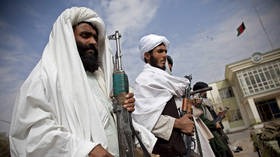Ayodhya dilemma: HISTORICAL VERDICT which could draw battle lines between Hindus and Muslims in India
India will be on the edge days thereafter as Supreme Court announces its verdict on Ayodhya temple, which could lead to a violent backlash between contesting Hindus an Muslims.
Indian Supreme Court would make a call if over a billion Hindus could have a temple for Lord Rama over a land in Ayodhya. It’s disputed by millions of Muslims. Though the dispute has lasted for over a century, it turned combustible in 1992 when a clutch of Hindus brought down a mosque, Babri Masjid, they believed was built in the 16th century over the site where Lord Rama was born.
India witnessed its worst communal riots in the wake of the incident, which left over 2,000 people killed.
So high run the emotions on either side that when a lower court equally divided the land among the Hindu and Muslim litigants in 2010, they promptly went to the apex Supreme Court claiming complete, and not partial, control over the land.
Days, months and years have passed since then, petition after petition after petition, forcing a cagey Supreme Court to finally bell the cat, after it tried and failed to see the light through a mediation process initiated between the opposing parties.
Now the verdict is at hand, and everyone is jittery. Religious leaders are asking for calm and peace among their followers, irrespective of who wins in the end.
Among two poles
Muslims in India have grown to over 200 million who are constitutionally allowed to propagate their religion and allowed a fair bit of liberty to follow Sharia or Islamic law as prescribed in their holy book Quran. It has allowed them to resist the imposition of Uniform Civil Code (UCC) which is desired but never implemented by the Indian state.
They have the freedom to run their own educational institutions, mosques and retain complete control over lands which is gifted to them under charity. But Indian Muslims are now face to face with a resurgent majority Hindus, and their fears have amplified with abrogation of Triple Talaq and Article 370 in Kashmir. An unfavorable verdict on Ayodhya temple could be a flashpoint which India’s liberal brigade would try their best to inflame and put the country on fire.
New challenge for Modi
In other words, nobody is under-estimating the fallout of verdict though. Prime Minister Narendra Modi has already made a public appeal for calm to the citizens of his country. The verdict could still open up the deep communal fault lines in the country, evoking the image of Partition at the time of independence in 1947, which created Pakistan and cost at least 2 million lives.
Also on rt.com Indians angry with Google over ‘2020 Sikh Referendum’ app, accuse Pakistan of supporting secessionist movement
The evidence in the aftermath of demolition of Babri Masjid is already known. Widespread attacks against Hindu temples were reported from Pakistan. Hundreds of shops, homes and temples of Hindus were destroyed in Bangladesh. The issue of Kashmir is already simmering. The pluralistic character of Indian society could come under serious stress.
It could have deep political implications too: the ruling Bharatiya Janata Party (BJP) after all rode on the sentiment in favor of the temple to be where it is today. In 1984, it had just two seats. Presently, it occupies 303 seats in the 543-seat Parliament. India could see one of its most momentous time since independence in coming days.
By Ashish Shukla, a senior journalist and geopolitical analyst based in India, author of 'How United States Shot Humanity'. He runs a website, NewsBred.
Like this story? Share it with a friend!



